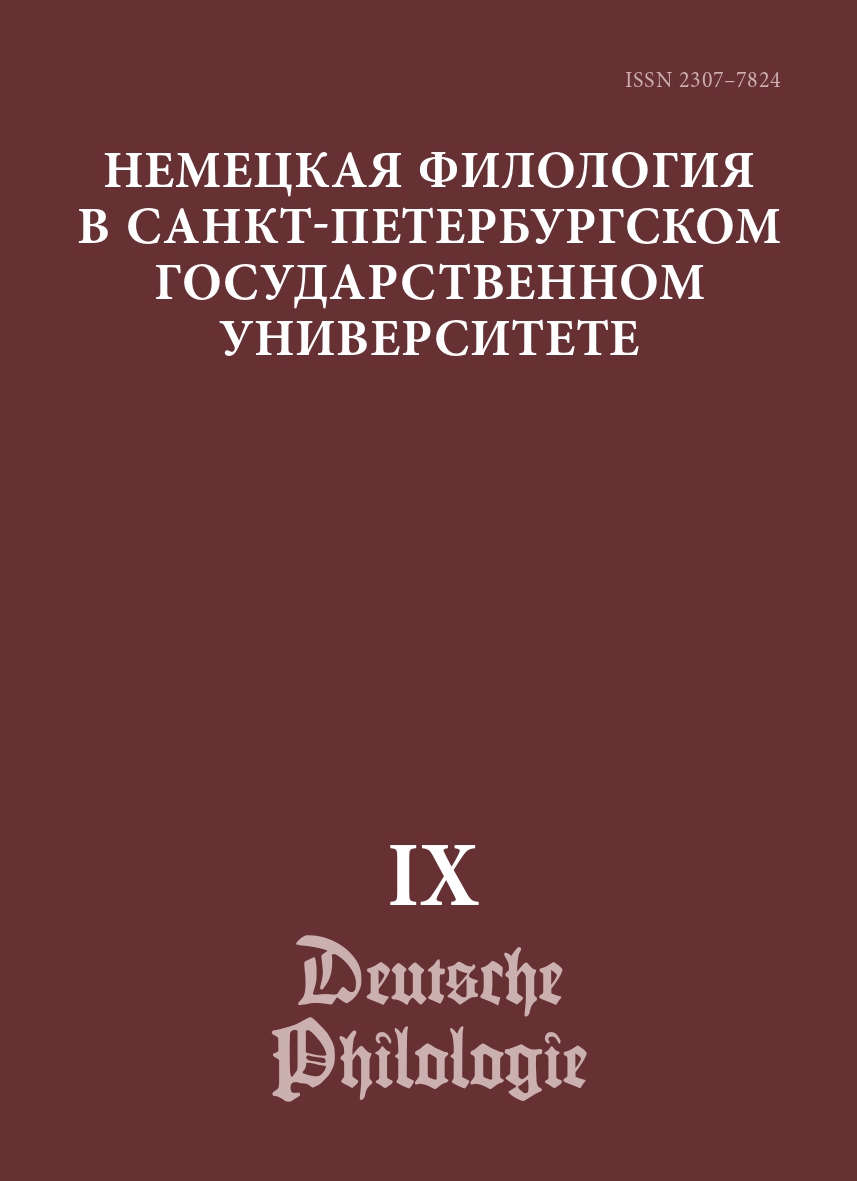INTERTEXTUALITY IN THE NOVEL “THE OPPERMANNS” BY LION FEUCHTWANGER
Abstract
“The Oppermanns” was published by L.Feuchtwanger during his exile in 1933. The novel is dedicated to the German history of the 1930s. The tragic changes in the life of the country at the time of the Nazi rise to power are depicted through the story of one family. This novel comprises various types of intertextual links. Quotations and paraphrases interconnect the novel with the works of such classics of German literature as Goethe, Lessing, Kleist, and other less famous writers; with Homer and Shakespeare’s poetry; with religious materials of Christianity and Judaism; with song lyrics and opera librettos. The novel includes attributive quotations and quotations with no attribution. Both the authorial text and characters’ direct speech are rich in intertextual links. In some cases the characters of the novel use the references to certain texts as a rhetorical device in order to create an impression on their interlocutors. In others they turn to precedent texts as a spiritual and mental guiding line, looking for support at hard times. However, the texts, related to world culture, are opposed to sources of political life of the 1930s, which the novel has also some affiliations with. Precedent texts referred to by the novel characters define their world view and allow the reader to better understand their actions. Furthermore, the presence of paratextual links should be noted. The epigraphs to some of the novel chapters carry important messages. The article analyses different types of intertextual links and defines their functions in the novel.
Keywords:
intertextual links, historical novel, epigraph, quotation, attribution of quotations, paraphrase, precedent text
Downloads
Downloads
Published
How to Cite
Issue
Section
License
Условия передачи авторских прав на статьи и рецензии, опубликованные в ежегодном периодическом издании «Немецкая филология» регулируются условиями Лицензионного Договора автора с Санкт-Петербургским государственным университетом. В соответствии с Лицензионным Договором опубликованные материалы находятся в открытом доступе, а авторам бесплатно предоставляется неограниченные возможности их распространения и самостоятельного архивирования.




